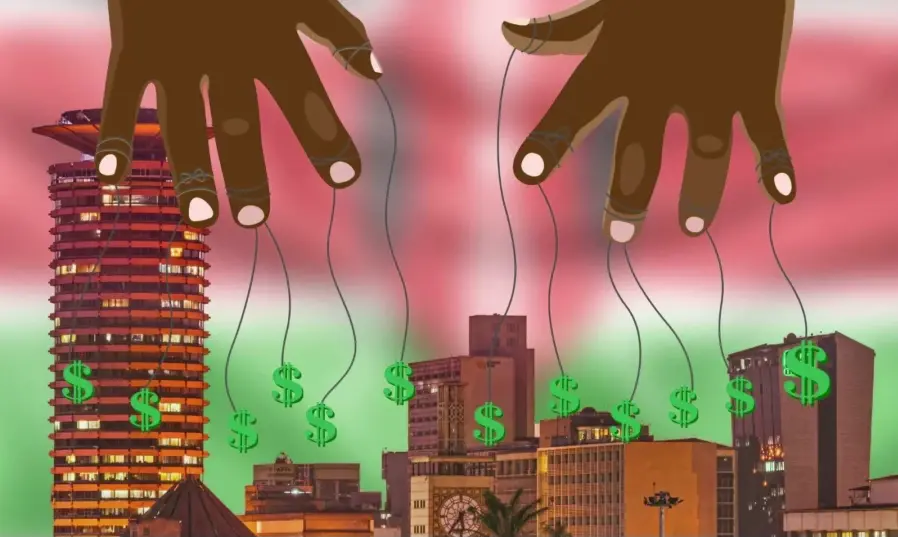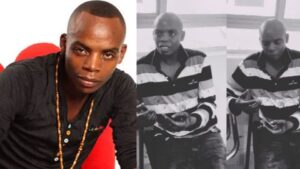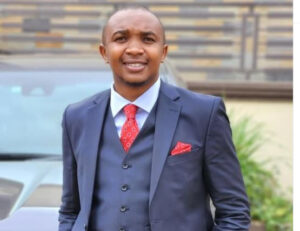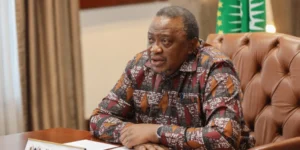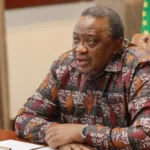In Kenya’s business history, few names resonate with as much power and intrigue as Nicholas Biwott. Known as one of Africa’s wealthiest individuals, Biwott’s empire spanned across diverse sectors, leaving an indelible mark on the country’s economic landscape.
However, behind the glitz and glamour lay a man of intriguing habits and enigmatic choices.
![Kipyator Nicholas Kiprono arap Biwott. [Image/File]](https://news.switchtv.ke/wp-content/uploads/2023/08/9-Things-You-Need-To-Know-About-Nicholas-Biwott-Before-His-Death.jpg)
Entrepreneurial Genesis
Nicholas Biwott’s journey began in the humble village of Chebior in Elgeyo Marakwet, where he was born to entrepreneurial parents.
The seeds of his business acumen were sown in his early years, as he worked alongside his father in their fruit and vegetable business. This foundation culminated in the establishment of ABC Foods in the 1960s, a venture focused on animal feeds and products.
Determined to broaden his horizons, Biwott ventured to the University of Melbourne in Australia, becoming the first Kenyan to study there.
Upon his return, he acquired the Eldoret Town International Harvester dealership, laying the cornerstone for his expansive Lima Group of Companies.
A Diverse Empire Takes Shape
From a dealership, Biwott’s empire burgeoned, reaching its zenith in the 1990s. His shrewd strategy involved purchasing struggling or small businesses and transforming them into thriving ventures.
He delved into real estate, acquiring sprawling plots in Nairobi and other cities. Among his iconic acquisitions was the Yaya Centre, a landmark that recently passed to the Kantaria family.
The 1970s marked his entry into real estate, while the 1980s saw him diversify into manufacturing, oil, and banking.
His acquisitions included steel mills, textile factories, and a substantial share in Kenol-Kobil, a prominent chain of petrol stations.
![Yaya Center: Biwott's Major Investment [File/Image]](https://news.switchtv.ke/wp-content/uploads/2023/08/nicholas-biwott-140cfac1-f3ca-4a1f-87c2-9b5f1b9aca0-resize-750.webp)
List of the Major 35 Companies that Nicholas Biwott Owned in Kenya
| Name of Company | Ownership Structure |
| Barsirim Investment | Biwott 100% |
| Kipsinende Farm | Biwott 100% |
| Rono Ltd | Biwott 100% |
| National Milling Corporation | Seven shareholders including Moi and Kulei |
| Yaya Centre (worth KSh 3.5 billion) | Biwott 100% |
| HZ Group of Companies | Biwott 100% |
| LZ Engineering | Biwott 100% |
| Premier Group of Companies | Biwott 100% |
| HZ Construction and Engineering | Biwott 100% |
| Air Kenya Aviation Ltd | Biwott 100% |
| Pete Aviation and Electronics Ltd | Biwott 100% |
| Ziba Management & Services | Biwott 100% |
| HZ Group of Companies, Israel | Biwott 100% |
| Lima Kenya | Biwott 50% |
| Air Kenya | Biwott 50% |
![List of Companies that Nicholas Biwott Owned in Kenya, Uganda and Australia [File/Image]](https://news.switchtv.ke/wp-content/uploads/2023/08/List-of-More-than-35-Companies-that-Nicholas-Biwott-Owned-in-Kenya-1.jpg)
Biwott was said to own the following, but reports are unconfirmed;
| Name of Company | Ownership Structure |
| Uhuru Highway Development Real Estate Company | No Information |
| BIDCO | No Information |
| A 10,000 hectare ranch in Australia | No Information |
| Trinity Enterprises | Biwott, Moi. Corporate documentation indicates witness to signatures as M.H da Gama Rose |
| Banque Belgolaise | Biwott 40%, Akber Esmail his nominee. Used in Trans-National Bank laundering system. ! |
| Team Simoco | No Information |
Meanwhile, he also had shares in the following:
| Name of Company | Ownership Structure |
| Kenoil-Kobil (National chain of petrol stations) | Biwott controlled 17% of private oil industry in Kenya. |
| Petrol Stations in Uganda | Operated through Kenol-Kobi! (worth KSh7 billion) |
| Westmont | An independent power producer company owned by Biwott and Harbinder Sethi Singh. |
| Grand Diani Reef Hotel | Once placed under statutory receiver when the hotel defaulted on a KSh 500 million loan acquired from Kenya Commercial Bank (KCB) |
| Regional Air | Newly formed company managed by Biwott’s son-in-law Charles Field-Marsham. Has a code-sharing arrangement with British Airways. |
| H Young and Company | Steel manufacturers – one of largest in East Africa |
| S.R Telecommunications Co. Ltd | Receives contracts from government-owned telecommunications monopoly company, Telkom Kenya |
| Lima Ltd | One of the best-established agricultural machinery firms in Kenya. Owned jointly with powerful politicians and their families |
| First American Bank | Merali, Biwott, James Kanyotu, Gideon |
Biwott’s Quirky Habits
Despite his immense wealth, Biwott’s life was coloured with eccentricities that set him apart. Foremost among these was his aversion to personal technology. He was famous for never owning a phone.
Instead, he borrowed phones, made his calls, and rewarded his helpers generously. This eccentric behaviour was often attributed to security concerns, which cloaked his life in an aura of mystery.
Moreover, the billionaire, who could easily afford an array of luxury vehicles, opted for taxis.
Biwott would board a taxi, travel a short distance, and pay the driver a sum that exceeded the usual day’s lease – a choice that baffled many and added another layer of intrigue to his persona.
Read also: Uhuru Kenyatta’s Bulletproof G Wagon: A Fortress on Wheels
Controversy and Legacy
As with many individuals of extraordinary wealth and influence, controversy followed Biwott. Critics alleged that his riches were amassed through corrupt means.
The 2007 leaked Kroll report alleged international property holdings, but his lawyer, Desterio Oyatsi, who was also the executor of his will, dismissed these claims.
In addition to his business accomplishments, Biwott’s political influence was undeniable. Serving in eight ministerial positions in the then President, the late Daniel Arap Moi’s government, including as Minister for Finance, his connection to Moi played a role in his prosperity.
Conclusion
Nicholas Biwott’s story is one of rags-to-riches, intrigue, and eccentricity. From a small village in Elgeyo Marakwet to the pinnacle of Kenyan business, his legacy is woven into the fabric of the nation’s economic history.
The man who defied convention by eschewing personal technology and luxury cars remains a figure of fascination, a reminder that true success can emerge from the most unexpected paths.
Subscribe to Switch TV


